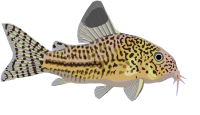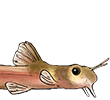how does changing pH affect fish?
how does changing pH affect fish?
Can anyone tell me what effect (physiological) pH values have on fish. similarly hardness.
Rahul
- Silurus
- Posts: 12468
- Joined: 31 Dec 2002, 11:35
- I've donated: $12.00!
- My articles: 55
- My images: 902
- My catfish: 1
- My cats species list: 90 (i:1, k:0)
- Spotted: 432
- Location 1: Singapore
- Location 2: Moderator Emeritus
- Barbie
- Expert
- Posts: 2964
- Joined: 03 Jan 2003, 23:48
- I've donated: $360.00!
- My articles: 1
- My images: 15
- My catfish: 2
- My cats species list: 58 (i:2, k:0)
- Spotted: 8
- Location 1: Spokane, WA
- Location 2: USA
Higher pH also causes ammonia to be more toxic to the fish exponentially. Meaning that a pH of 6.0 would make ammonia ten times less toxic than it will be at 7.0 or a hundred times less than it would be at 8.0.
The hardness of the water usually isn't a problem for the fish, other than when they are spawning, as it can cause the eggs to harden too quickly and not become fertilized. Harder water tends to have a more stable pH, to the point that truly hard water can keep your pH from being modified chemically without removing some of the buffering capacity first.
Most aquarium fish can be slowly acclimated into your tap water, as long as it is within 6.5-7.8 pH. Obviously african cichlids do better at the top end of the scale, and south american soft water type fish do better at the lower end, (due to no tolerance for ammonia at higher pH). If you know what your tap water conditions are, its quite easy to plan for fish that will be happy in your water before you go shopping. Modifying your tap water for your fish is a bad idea in most cases, due to the need to pretreat and "age" water that you're modifying the pH on, to prevent the acids and buffering capacity of the water itself from causing "bounce" in your tank. The stability of your pH is MUCH more important to your fish, than whether its in the ideal range for them. Obviously you can't keep rift lake fish in truly acidic water, or softwater fish in tap water with a pH of 9.0, but stability is the key, not matching the exact parameters the fish's ancestors were collected in, IMO.
Hope that helps,
Barbie
The hardness of the water usually isn't a problem for the fish, other than when they are spawning, as it can cause the eggs to harden too quickly and not become fertilized. Harder water tends to have a more stable pH, to the point that truly hard water can keep your pH from being modified chemically without removing some of the buffering capacity first.
Most aquarium fish can be slowly acclimated into your tap water, as long as it is within 6.5-7.8 pH. Obviously african cichlids do better at the top end of the scale, and south american soft water type fish do better at the lower end, (due to no tolerance for ammonia at higher pH). If you know what your tap water conditions are, its quite easy to plan for fish that will be happy in your water before you go shopping. Modifying your tap water for your fish is a bad idea in most cases, due to the need to pretreat and "age" water that you're modifying the pH on, to prevent the acids and buffering capacity of the water itself from causing "bounce" in your tank. The stability of your pH is MUCH more important to your fish, than whether its in the ideal range for them. Obviously you can't keep rift lake fish in truly acidic water, or softwater fish in tap water with a pH of 9.0, but stability is the key, not matching the exact parameters the fish's ancestors were collected in, IMO.
Hope that helps,
Barbie





